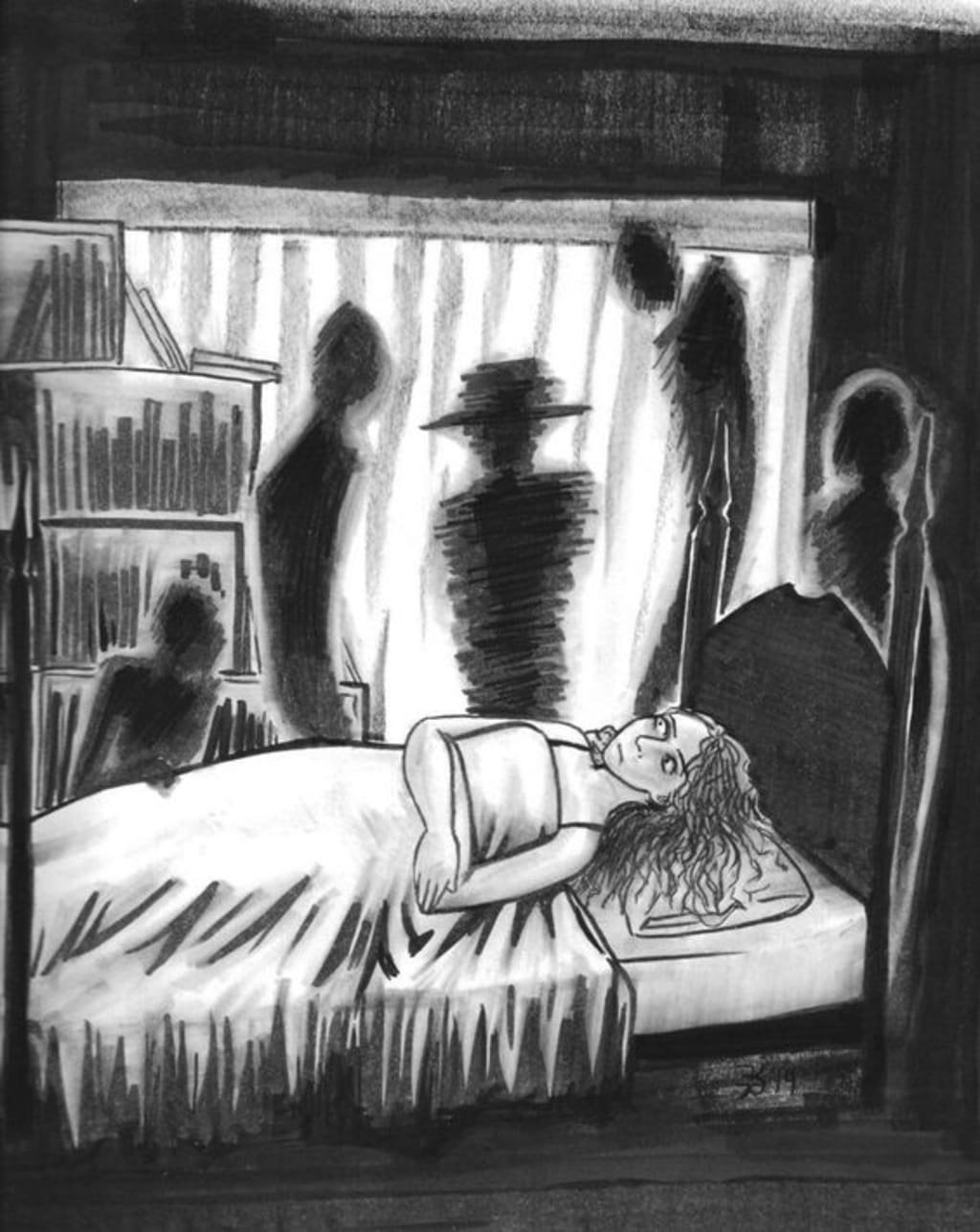
At some point of our life, we’ve all woken up from a nightmare, obviously terrified and shook up, but then realize it wasn’t real. But imagine waking up and living that nightmare. Imagine seeing a creature in your bedroom looking at you, but not being able to move or yell for help. This is what people with Sleep Paralysis experience nightly.
According to the American Sleep Disorder Association, Sleep paralysis can be described as “a transitional state that occurs when a person experiences a temporary inability to react, move, or speak while asleep, falling asleep, or on awakening from sleep”
I actually experienced an episode of sleep paralysis one night when I was 16 years old. I was lying in bed trying to fall asleep. As I started to doze off, I heard creepy giggling right next to me. Naturally, I panic. Then I heard my mom yelling my name from downstairs, like she usually does when dinner’s ready or when she needs me. I open my mouth to yell “what” back but I can’t speak. I try to move but I’m unable to but it was like a weight was on my chest and it was restraining me. Minutes later, I awake from the trance. It was one of the most terrifying moments I have ever experienced.
Sleep paralysis, as I briefly stated before, is a disorder where in the process of falling asleep, you find yourself completely awake, but unable to move or speak. Normally when you sleep, your brain sends a signal to your voluntary muscles to relax and go into a state of paralysis, restricting your physical movements in your dreams so you don’t act out the dreams and hurt yourself. But in sleep paralysis, your brain awakens while your body stays paralyzed. Basically, you’re alert and conscious but cannot move. This is usually accompanied by a sensation of chest pressure. It’s also accompanied with a feeling of slowly dying, explaining why a person feels like they woke up in a coffin or buried alive.
Sleep paralysis often occurs either when you’re falling asleep or waking up.
When you sleep, your body has to go into REM sleep. This is the period where you have increased brain activity and experience your most vivid dreams. Sleep paralysis happens when there’s a disruption in the REM sleep . No matter how much you try, you cannot wake your body up. Very few people can slightly move their fingers or wiggle their toes to wake themselves up, but for most part you just have to wait it out. An episode of sleep paralysis can last for several seconds to several minutes
Sleep Paralysis is often accompanied by hallucinations. These hallucinations often involve a supernatural creature or other terrifying person. They can be lurking outside the person’s window or even going into their bedroom. These hallucinations are obviously terrifying to the sleeper, as they’re completely awake during this experience, but they can’t move or yell for help. I remember having a sleep paralysis episode a couple months ago and I hallucinated someone holding me down and attacking me. It felt so real and it absolutely scared me to death.
Sleep paralysis can be divided into 3 categories: the intruder, the incubus, and vestibular/motor . According to James Allen Cheyne, sleep paralysis expert and professor at the university of Waterloo Sleep, vestibular and motor sleep paralysis are relatively harmless and even can be considered enjoyable. You could feel like you’re floating or levitating or your arm is being lifted. However the other two are not so enjoyable. For intruder sleep paralysis, the main sensation is a feeling of something in your room. That presence can be seen, heard and even physically felt. It can also move around the room and sometimes even climb onto your bed. The incubus sleep paralysis often continues the intruder sequence by climbing on top of the sleeper. It can smother you and it even physically or sexually assault you.
According to a study by psychologists from Penn State and the University of Pennsylvania, less than 8% of the general population experiences sleep paralysis. They found that this disorder is commonly experienced by two groups: students and psychiatric patients. Brian A. Sharpless, who is a clinical assistant professor of psychology and assistant director of the psychological clinic at Penn State, looked at 35 published studies from the past 50 years to find rates on sleep paralysis. While looking at specific groups, he found that 28% of students and nearly 32% of psychiatric patients experienced sleep paralysis. He also found that people with panic disorders were more likely to experience SP, as 35% of them reported experiencing it. The results also pointed out that minorities experience sleep paralysis more frequently than Caucasians .
According to the American Sleep Disorder Association, sleep deprivation, increased stress and irregular sleep patterns are major causes of this disorder. Sleep paralysis has always been linked to disorders like migraines, obstructive sleep apnea, narcolepsy, and anxiety disorders. Also sleeping on your back in a fixed position increases their chance of experiencing sleep paralysis.
So as you see, Sleep Paralysis is a serious sleeping disorder that can be really frightening. The experience of not being able to move or speak, but to be completely conscious, is being in virtual reality nightmare. You can prevent sleep paralysis by getting enough sleep and not over stressing yourself out. You can also trick yourself to not be afraid, by telling yourself it’s just a dream or counting numbers. You can’t exactly run away from it or yell for help, so you might as well use the power of your mind. So if you ever experience sleep paralysis, just say hey to the intruder and chill out. It’ll be over before you know it.





Comments
There are no comments for this story
Be the first to respond and start the conversation.